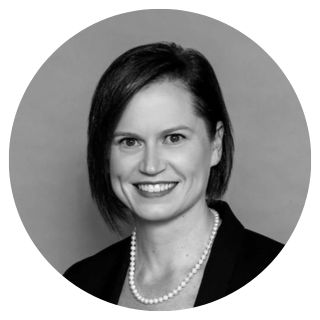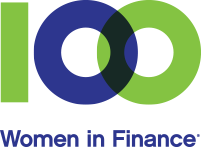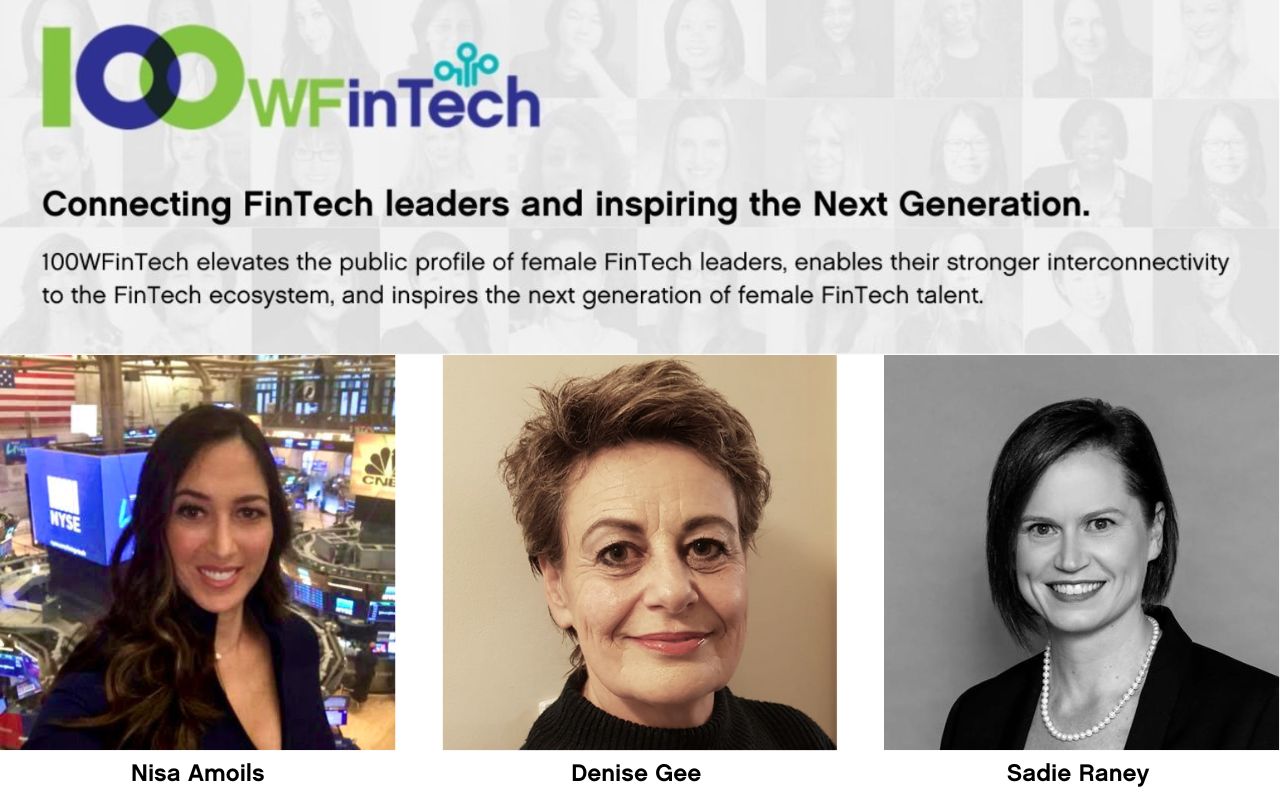Worldwide, women are leading the way in building and funding disruptive technologies in fintech to advance businesses, broaden access and reduce the disparity in wealth, and transform how people invest in digital assets. Many of these women are featured in 100WFinTech’s Public Directory and are the changemakers in their respective fields in FinTech.
In the inaugural ‘100WFinTech Changemakers’ series, we are sharing the journey, mission, and learnings of three senior FinTech women in the Public Directory from around the world, Nisa Amoils, Denise Gee, and Sadie Raney telling the stories of how they created and leveraged opportunities that were open to them via their writing, talks, entrepreneurship, investing, and community building. In the process, they open doors for women investors and diverse founders and broaden financial access for many. We hope the stories of these female FinTech leaders can inspire the next generation of finance professionals to build a better and more inclusive world by leveraging technology.
If these stories and missions resonate with you, please share them with your network, get in touch with us, or join the Public Directory.
 Nisa Amoils, Esq., Managing Partner, A100X Ventures, US
Nisa Amoils, Esq., Managing Partner, A100X Ventures, US
Voted “2022 Top 50 Women in Web 3”
LinkedIn: www.linkedin.com/in/nisaamoils
First, we chat with Nisa Amoils, Managing Partner at A100x Ventures, where she invests in early-stage Blockchain/AI companies. She has been in venture capital for over 12 years and investing in blockchain since 2016, with multiple unicorns and exits. Nisa previously worked for Dragonfly Capital and Scout Ventures and used to practice securities and corporate law at Anderson Kill. She serves on Boards such as Wharton Entrepreneurship, Global Digital Assets and Crypto Association, GBBC, Nightfood (NGTF), etc.
Nisa has been named top 50 women of Web 3, Business Insider’s Women VCs to watch, 2021 systematic leader in asset management, top 100 Women in Fintech, and top 50 global Blockchain thinkers. She is an occasional host and commentator at Defiance Media and Forbes, having previously done anchoring and contributed on air. She holds a business degree from the University of Michigan and a law degree from the University of Pennsylvania. She is a frequent contributor to Forbes and the author of the book: WTF is Happening: Women Tech Founders on the Rise.
▪ ▪ ▪
Nisa shares her insights on what motivated her to write her book, the ensuing impact, and her vision of the future for women’s voices and founders in new technologies such as AI and crypto and more capital reallocation to fund these founders.
▪ ▪ ▪
Why did you write this book: WTF Is Happening: Women Tech Founders on the Rise?
I have been investing in blockchain/AI businesses for the past decade. Since the 2% of VC that goes to female founders has never moved, I wanted to highlight exciting future use cases for the technology and make a business case for investing in women. VCs were almost unanimously run by men, and the female founders did not know how to get to them through their networks. I was hoping that investors would recognize there are many more women founders out there-too many to be put in one book. I wrote about the fact that women are building businesses at the fastest rate and also outperforming. Women’s businesses are an undervalued asset class, so there is a classic arbitrage opportunity.
I also wanted to get more women into my heavily male-dominated sector. Many think they cannot join if they do not have a STEM degree, but you do not. STEM is being scarily marketed to young girls, and it should be marketed in a way that you can envision something, design it, and then have the tools to build it. Take your idea to life. That is a much better way of marketing STEM.
What have you learned in the process? If you could redo the process, is there anything you would change?
While it has inspired many more women to join our sector, it has not changed the funding that goes to them. I have been writing for Forbes on different topics in disruptive technologies. I knew about all these great women founders in the world and felt like they were not getting enough attention from the media.
What did not make it to the book?
The story of women-run VCs not getting funded and the systemic barriers that remain for that to change were not in the book. Sovereign wealth funds, endowments, pensions, and other institutional investors control most of the capital. If you want to move the needle, you need a macro capital reallocation from those sources to trickle down. But no one is making that happen. There have been efforts by many women’s groups and bottom-up approaches to the problem with no real change – the small percentage numbers hardly move.
What would you do if you were not doing what you are doing?
I have been spending a lot of time in Washington trying to educate about different use cases of blockchain that have nothing to do with crypto and its negative image. I have also written a lot about this in Forbes. I would like to get more involved in policies that could change systems.
What advice would you give to someone wanting to follow a similar path, i.e., write a book?
You need to be OK with being alone because it is generally isolating work. You need not expect that things will change from the book and have a marketing plan way before the book comes out and leading up to the publish date.
What is the biggest takeaway you want to leave with the reader at 100 Women in Finance/100WFinTech?
We are in an unprecedented time of disruptive technologies converging at an ever more rapid pace. Will AI be using crypto? Will both be used in the metaverse? I am hoping more women enter into these fields to build the future and women have an equal say in what that future will look like. For instance, if we are programming artificial intelligence, we can’t have half the population programming what the computers are meant to learn. We need women’s voices in there, and the same for virtual reality, blockchain, and all these technologies. We need to fund this and have a smart policy that allows innovation to improve people’s lives.
 Denise Gee, Co-founder, Findexable, UK
Denise Gee, Co-founder, Findexable, UK
LinkedIn: https://www.linkedin.com/in/denise-gee-6a2249/
Next, we chat with Denise Gee, co-founder and Managing Director of Findexable – the new digital platform for fintech insight and benchmarking, and home to the Global Fintech Index. Findexable is the world’s first real-time fintech benchmark aiming to make it easier for buyers of innovation to invest or buy technology in every corner of the world and provide visibility to previously overlooked fintech companies. Denise is a seasoned journalist, marketer, researcher, and strategic advisor with 20 years of experience in fintech and digital financial services across Europe, the Middle East, Africa, and the US. She is also the founder of MagnaCarta, a communications advisory and research firm, and serves on the board of Fintech Mundi, a Nordic fintech accelerator. Before establishing her own business, she held executive positions as Global Transformation Lead at BP and served as Head of Corporate Communications for Visa’s CEMEA (Central Europe, Middle East, and Africa) region.
▪ ▪ ▪
Denise’s firm Findexable has partnered with Women’s World Banking and Money 2020 to launch the Fintech Diversity Scorecard to track the diversity of fintech companies to help these companies benchmark themselves and measure their diversity progress. “If we don’t measure or understand where we are, we will not move forward fast enough,” Denise calls upon all fintech-focused firms, large or small, globally to help fill in the picture of diversity by taking this survey.
▪ ▪ ▪
Why did you create the Fintech Diversity Scorecard? What and who is it for and when was it launched?
Findexable took the pulse of Fintech with the launch of the Diversity for Growth Report 2021 which provided the first dataset for diversity in fintech globally. Analyzing data from 1,000 best-funded fintech firms worldwide, we found that diversity – of company staff and by default often of the customers served by fintech firms – is an area where “could do better” would be a report card understatement.
The report revealed the size of the problem. Women were only to be seen or heard in the areas you would expect them, and as a result, the opportunity to design relevant financial products for women entrepreneurs is lost.
This is why we have built a coalition to launch the Fintech Diversity Scorecard with Women’s World Banking and Money 2020. The first step is to develop a global dataset tracking diversity of fintech companies and helping individual fintech companies, both large and small, benchmark themselves and measure progress.
What have you learned in the process?
Intent is not enough to change systemically entrenched behaviors and practices. While things are starting to change and diversity is getting the airtime, change won’t come quickly without concerted effort, collaboration, and consistent measurement. We are appealing to parties across fintech and financial services to join the coalition and to help us push the needle for at least 30% women participation in fintech by 2030.
What did not make it to Fintech for Growth Report/Scorecard?
With ESG reporting not being mandatory, data of privately held fintech companies on diversity is not readily available. We have measured the state of play for the largest 1,000 firms but believe that measurement of the current state of a company’s diversity position across the fintech sector globally is critical. We all know progress is being made but we need to be clear of where we are now to accelerate that progress. If we don’t measure and understand where we are we simply will not move forward fast enough. Data gathered through the new Fintech Diversity Scorecard will provide an annual stocktake on progress, and we call on partners to join the coalition for real change.
What was the best thing after you launched the report and scorecard? Anything surprising?
We have had positive participation and are pleased to see a breadth of respondents – including smaller fintech. However, we need to grow the sample and appeal to fintech firms of all sizes globally to complete the simple, 6-minute anonymized survey that provides individual companies with a view of their own progress on diversity, as well as how the fintech industry as a collective is progressing.
What would you do if you are not doing what you are doing?
I am involved with a Christian youth charity, which provides a safe place for young people to meet, have fun, and discuss future opportunities and challenges that are so prevalent in their lives today.
What advice would you give to someone wanting to follow a similar path? I.e., building a coalition/index.
The old saying that ‘no man is an island’ is particularly true today and we have seen the positive impact of partnerships between fintechs – the ‘newcomers’ to financial services over the past ten years or so – and their traditional counterparts. Together they are stronger and able to offer better, easier-to-use, and cheaper products and services to customers. Achieving meaningful results is all about collaboration.
What important message do you want to share with the 100WF/100WFinTech audience?
100WF/100WFinTech is by its very nature driven to uplift and provide opportunities for women across financial services. It is doing immensely important work to enable women entrepreneurs and professionals to thrive globally.
We all know that investing in women both as customers and talent build competitive advantage. We need strong women to improve diversity in global financial services collectively. With the Fintech Diversity Scorecard, we now have a mechanism to help fintech firms build strong, gender-diverse teams and position themselves to serve and benefit from the multi-trillion-dollar women’s economy.
But we need data and are calling on fintech-focused members of this community to help us fill in the picture of diversity in global fintech.
Click on the link to receive a score for your company, an indication of how you rank against your peers, and a free report with recommendations.
 Sadie Raney, Co-founder and CEO, Strix Leviathan, and Co-founder of Makara (US/Europe)
Sadie Raney, Co-founder and CEO, Strix Leviathan, and Co-founder of Makara (US/Europe)
LinkedIn: https://www.linkedin.com/in/sadieraney/
Now, we shine the light on Sadie Raney, who is the Co-Founder and Chief Executive Officer of Strix Leviathan, a digital asset investment manager, and the Co-Founder of Strix Leviathan-spinoff Makara, one of the first SEC-registered automated investment advisors in crypto that was acquired by Betterment in 2022. Sadie has over two decades of experience in finance and leadership. Sadie previously served as Financial Controller for Blue Box, a cloud computing startup, and led the finance and administration team through the acquisition and integration by IBM. Sadie is an advisor for multiple early-stage startups, is an Entrepreneur in Residence and mentor for the Barcelona Technology Transfer Group at IESE Business School, and is a member of the Female Founders Alliance.
▪ ▪ ▪
Sadie’s passion for broadening investors’ access to the financial system via digital assets, building companies based on trust and transparency, and her valuable lessons learned and entrepreneurship advice are clear in this conversation. She is most positive about the emergent generations of entrepreneurs who are ready to test the boundary of technology.
▪ ▪ ▪
What has led you to launch multiple companies involving digital assets?
In late 2017, I became fascinated by cryptocurrency and blockchain technology. Having worked in tech for many years, I recognized the incredible potential inherent in what was being built and the boundless impact digital assets could have on our everyday life. I saw digital assets as a vehicle to transform traditional financial systems and infrastructure.
In financial management, trust is imperative. Unfortunately, time and time again, we have seen examples of wealth and investment managers who put their own personal interests ahead of their obligations to their clients. Investors do not entirely trust our current financial infrastructure, and the issues that have plagued our financial system for years continue to linger. Something needs to change.
In co-founding Strix Leviathan and Makara, my mission has been to leverage the incredible potential of digital assets to redefine trust in financial markets. Our focus is on protecting our investors, ensuring transparency at all times, and providing investors greater access to financial markets. These same principles are also at the core of the digital asset ecosystem, and it has been thrilling to continue to invest in this space and grow alongside it.
What have you learned in the process? What are you most excited about going forward?
I have learned that I enjoy building solutions for clients and that I love the startup environment. The pace can be frantic and at times exhausting, but the ability to see real results from my work creates a satisfaction that I can’t describe.
I have learned humility, which I think is key to surviving in a startup environment. You have to learn to fail before you succeed. You may build a product you think is amazing, but your customers show no interest in it. You’ll test out a software upgrade that breaks everything. You will hire the wrong person. The speed with which you learn from those failures and turn them into successes will make all of the difference.
Going forward, I am most excited about emerging generations of entrepreneurs. Teenagers right now have grown up with technology as a given; they are by and large digitally native humans. Unlike older generations, they are not skeptical about digital assets, but wildly curious. They are more willing to test the boundaries and explore ideas. Add in the recent wave of advancements in AI, and the ideas that will develop over the next twenty years will be nothing we could have imagined.
You have also helped write a book. What was the best and most surprising thing that came out of that experience?
The best part of writing The Myth of the Idea was working with Professor Newton Campos. Having the opportunity to work directly with Professor Campos – a thought leader in my chosen field – was priceless. Professor Campos has a constant and clear energy and excitement for entrepreneurship. I learned so much not only in writing the book but also in the side conversations we had throughout the process. Professor Campos’ enthusiasm and guidance cemented my passion for startups.
While working on the book together, Professor Campos and I were almost never in the same time zone or same continent. Without realizing it, I learned how to collaborate remotely on a long-term project, which is a skill that has been very useful for me since launching Strix Leviathan. We are a geographically diverse team and that takes a surprising amount of work to manage successfully.
What surprised me most was the length of time needed to write a book. Although Professor Campos had laid much of the groundwork for the book, there were numerous iterations that we went through to refine the messages and the content. Every revision also included new observations and new examples from any of the myriad projects that Professor Campos is involved in. At some point, he just had to draw the line so that the book could go to publication. A project that I anticipated to last a few months spanned years instead.
What would you do if you were not doing what you are doing now?
I would be a blockchain engineer. Managing a digital asset firm requires a lot of attention and energy every day, and I, unfortunately, do not have the time to dig into and build upon the technical minutia underlying the interesting projects in this space. But if it were up to me, I would love to focus on the technology underpinning the incredible innovation in crypto.
I would also focus more of my time on increasing financial education for women. I work with a number of teams and organizations right now that empower women to take control of their financial futures. However, my schedule sometimes prevents me from doing more in this space. That said, it is incredibly important to me that we, as a society, continue to help women gain financial independence, grow their investable portfolios, and achieve their lifestyle and retirement goals. The financial industry has been tailored toward men for decades, and there is a critical need for better financial tools for women.
What advice would you give to someone who also wants to be a founder?
I am a firm believer in the core concept behind The Myth of the Idea. While having an idea is a great catalyst for launching a startup, a great idea alone will not get you far. Before you launch headfirst into anything, plan it out and evaluate the resources that you have at your disposal. Your ability to leverage the resources available to you will be more important than the idea itself. Many great ideas fail because the founder did not have the resources needed to fully execute on it.
Additionally, founding and growing a company will never be linear. It’s important to learn from your mistakes and pivot when you need to. Getting anchored into one path or outcome will make your efforts infinitely harder. While founders are passionate about what they are building, their products may not always be exactly what their customers want. While it may be difficult, founders must accept that they will need to pivot sometimes and meet their customers where they are. Making the best business decisions should always come first.
What is the biggest advice you want to leave with our community?
Find something that you are passionate about. We spend so much of our energy and attention on work that we might as well spend our days doing things that inspire us.
Early in my career, I struggled with boredom in every role that I had. It was like clockwork: I’d take an interest in the beginning during the learning process and then once I got it, I found myself asking, “What else is out there?”
Since founding Strix Leviathan over five-and-a-half years ago, I have not once been bored. On the contrary, I am constantly inspired by the innovation and evolution in the digital asset space. The speed of this industry keeps me on my toes, and I wake up every day with an energy that only continues to get stronger. The work I’m doing is more engaging and rewarding than anything I have done previously. I plan to work in this industry for the rest of my career.
This is the first article of our Changemakers in FinTech series. In the future, we will continue to feature FinTech book authors, Ted talkers, lecturers, and influencers from around the world.
If you are interested in partnering with us at 100 Women in FinTech, please visit our website and contact us here.

